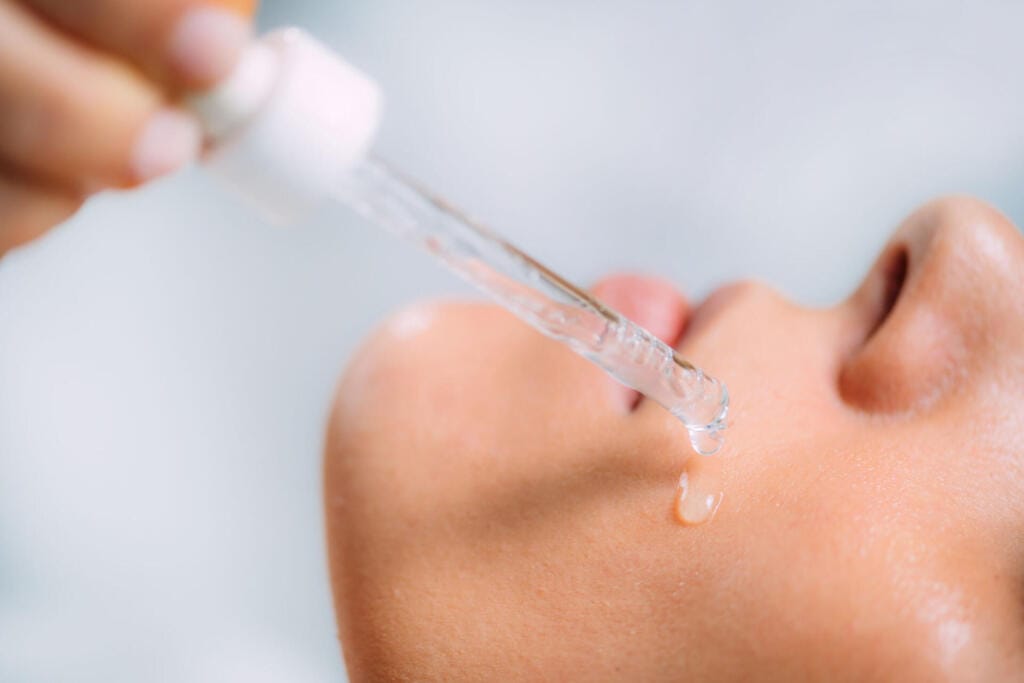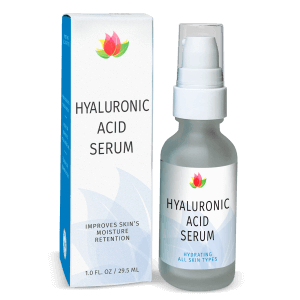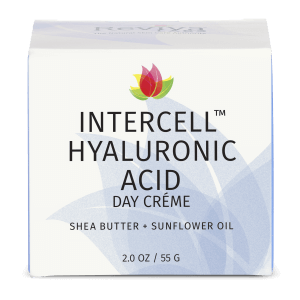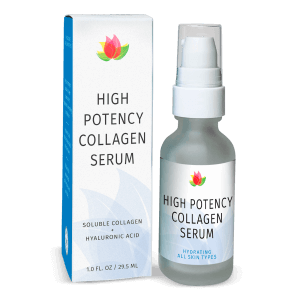Clean Beauty, Ingredients, Natural, Reviva Labs, Skin Care
Why Hyaluronic Acid in Skin Care?
There’s something wonderfully universal about the pursuit of healthy, glowing skin. Whether you’re scrolling through beauty blogs or chatting with friends, one name continues to pop up as a must-have in skincare routines: hyaluronic acid. It’s been lauded as a magic ingredient by dermatologists and skincare enthusiasts alike, but why is it so special? And, more importantly, how can you make it work for your skin?
Believe it or not, our bodies already produce hyaluronic acid naturally. It’s found in our skin, eyes, and connective tissues, where it plays a critical role in maintaining moisture levels. However, as we age, our body’s natural production of this crucial molecule declines. The result? Dryness, fine lines, and that gradual loss of the dewy complexion we all crave. This is where topical hyaluronic acid comes in to save the day.
But let’s get specific. Why should you—yes, you—make room for hyaluronic acid in your skincare routine? Spoiler alert: it’s not just for hydration. Let’s explore the science behind this powerhouse ingredient and how it can enhance every step of your regimen.
What is Hyaluronic Acid?
First things first—let’s clarify what hyaluronic acid (often abbreviated as HA) actually is. Despite its intimidating name, hyaluronic acid is not abrasive or harmful like some other acids used in skincare, such as salicylic or glycolic acids. In fact, it’s quite the opposite! HA is a sugar molecule that occurs naturally in the skin and has an impressive ability to retain water—holding up to 1,000 times its weight in moisture. Think of it as a super sponge that keeps your skin plump, smooth, and hydrated.
Hyaluronic acid’s water-attracting properties allow it to work wonders in keeping your skin hydrated. The molecule forms a protective barrier on the surface, locking in moisture, which not only helps to prevent water loss but also enhances your skin’s elasticity. The benefits of HA aren’t just cosmetic; well-hydrated skin is more resilient and better equipped to defend against environmental stressors, such as pollution and UV radiation.
Why Our Skin Needs Extra Help
As much as we’d love to rely solely on our body’s natural supply of hyaluronic acid, that’s not always enough. The aging process, combined with external factors like sun exposure and pollution, depletes the skin’s HA levels over time. By the time we hit our mid-40s, our skin’s moisture retention capabilities have significantly decreased, which can lead to visible signs of aging.
Adding a topical hyaluronic acid product into your skincare routine can help compensate for this loss. But don’t just take my word for it. According to a 2014 study published in Dermato-Endocrinology, hyaluronic acid is incredibly effective at improving skin hydration and elasticity when applied topically, even helping to reduce wrinkle depth with consistent use.
Hydration Is Key
If you take one thing away from this article, let it be this: hydration is at the core of healthy skin. Without it, your skin can become dry, irritated, and more prone to fine lines and wrinkles. Hyaluronic acid is essential because it addresses the root cause of many skin issues—lack of moisture.
Unlike heavy oils or occlusive moisturizers, hyaluronic acid is lightweight and won’t clog pores, making it suitable for every skin type. It’s particularly beneficial for those with dry or dehydrated skin, but even oily or combination skin types can benefit from its balancing properties. That’s right—even if your skin feels oily, it could still be dehydrated beneath the surface, which can exacerbate oil production.
Boosting Skin’s Elasticity
Elasticity is another critical component of youthful-looking skin. As we age, our skin loses its elasticity, leading to sagging and the formation of fine lines. Hyaluronic acid doesn’t just hydrate your skin—it helps it retain its natural bounce. When your skin is properly moisturized, it looks firmer and more supple.
Here’s where hyaluronic acid really shines it can improve skin elasticity without being too heavy. Many anti-aging ingredients work by stimulating collagen production, but HA’s unique ability to retain moisture works in a complementary way to help skin maintain its youthful firmness. It’s an immediate pick-me-up that also supports long-term skin health.
Enhancing Your Skincare Routine
Hyaluronic acid is incredibly versatile and can be layered with nearly any product in your existing skincare regimen. Whether you use it in a serum, a moisturizer, or a mask, incorporating HA is a simple but effective way to boost hydration at every step.
Here’s a pro tip: always apply hyaluronic acid to damp skin. Why? HA draws moisture from the environment into your skin, but if the air around you is dry, it might end up pulling water from your own skin instead, which can be counterproductive. Applying it right after cleansing or toning, while your skin is still slightly wet, helps ensure it pulls water from the products you’re using rather than your skin.
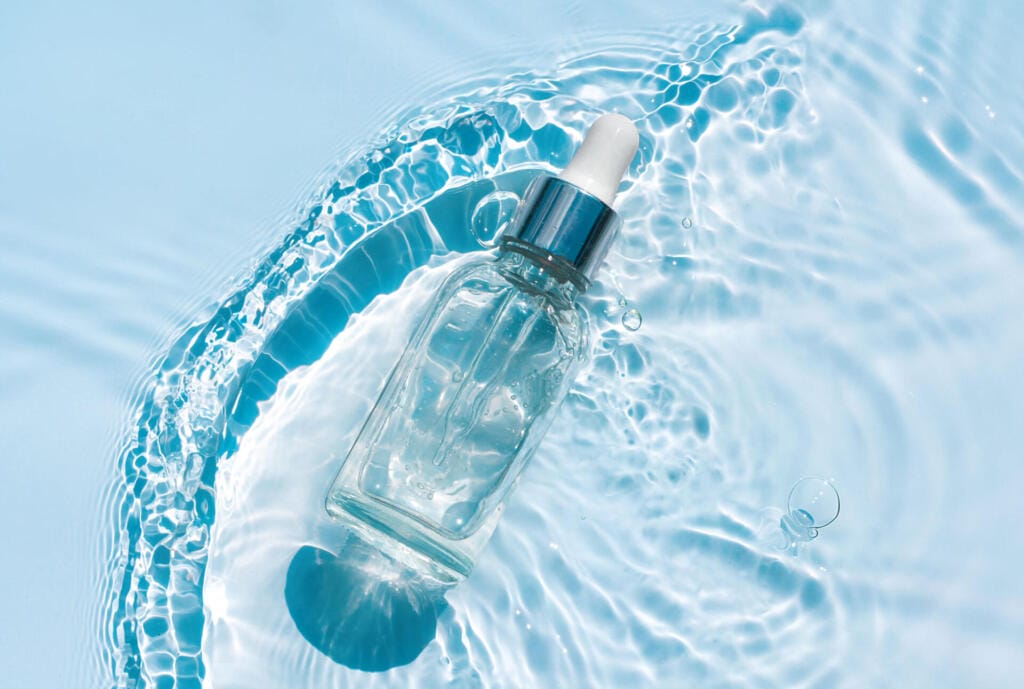
Additionally, since hyaluronic acid plays well with other ingredients, it can amplify the effects of other active components in your routine. For example, pairing HA with vitamin C can give you a brighter, more even skin tone, while combining it with retinol can help reduce irritation and enhance your skin’s ability to recover from retinoid use.
The Role of Molecular Weight
Not all hyaluronic acid products are created equal, and here’s why: the molecular size of HA can influence its effectiveness. High-molecular-weight HA sits on top of your skin, providing surface hydration and a protective barrier. This form is excellent for those looking for immediate results, like a smoother texture and a reduction in fine lines.
On the other hand, low-molecular-weight HA penetrates deeper into the skin, delivering hydration to the lower layers and supporting long-term moisture retention. Products that combine both high and low molecular weights offer the best of both worlds—immediate hydration and long-term results.
The Anti-Aging Superstar
Let’s face it, one of the main reasons hyaluronic acid has become a skincare favorite is its impressive anti-aging benefits. Fine lines and wrinkles are a natural part of aging, but with consistent use of hyaluronic acid, you can minimize their appearance.
HA helps by plumping up the skin from within, reducing the depth of wrinkles and making the skin appear smoother. Unlike some harsher anti-aging treatments, hyaluronic acid is gentle enough to use daily and won’t cause irritation or peeling. Over time, consistent hydration can slow down the aging process, giving your skin a more youthful appearance.
In a 2011 study conducted by researchers at the University of Michigan, participants who used topical hyaluronic acid experienced a 40% reduction in the depth of fine lines and a 55% increase in skin firmness over an eight-week period. If that’s not enough reason to love this ingredient, I don’t know what is!
A Hero for All Skin Types
One of the best things about hyaluronic acid is its universal appeal. Whether you have dry, oily, sensitive, or combination skin, this is one ingredient that will work for you. It’s non-comedogenic, meaning it won’t clog pores, and its hydrating properties make it perfect for those with sensitive or acne-prone skin.
If you’re someone who struggles with redness or irritation, hyaluronic acid can also help calm inflammation. By strengthening your skin’s moisture barrier, it reduces the likelihood of external irritants penetrating the skin and causing damage.
How to Choose the Right Hyaluronic Acid Product
There are endless options when it comes to hyaluronic acid products, but how do you choose the right one for your needs? Look for products that contain a mix of high and low molecular weight hyaluronic acid for the best results. Additionally, check the ingredient list to ensure that HA is listed near the top, as this indicates a higher concentration.
Also, remember that hyaluronic acid works best when it’s combined with other hydrating ingredients. Products that include glycerin, ceramides, or squalane can further enhance your skin’s moisture levels. Pay attention to the packaging too—hyaluronic acid is sensitive to light and air, so it’s best to choose products that come in air-tight containers to preserve their potency.
The Power of Hyaluronic Acid in Skincare.
There’s a reason hyaluronic acid has become a staple in the skincare routines of professionals and enthusiasts alike. Its ability to retain moisture, improve elasticity, and reduce signs of aging makes it a true multitasker in any regimen. Whether you’re looking for instant hydration or long-term anti-aging benefits, this powerhouse ingredient is a must-have for anyone serious about their skincare.



